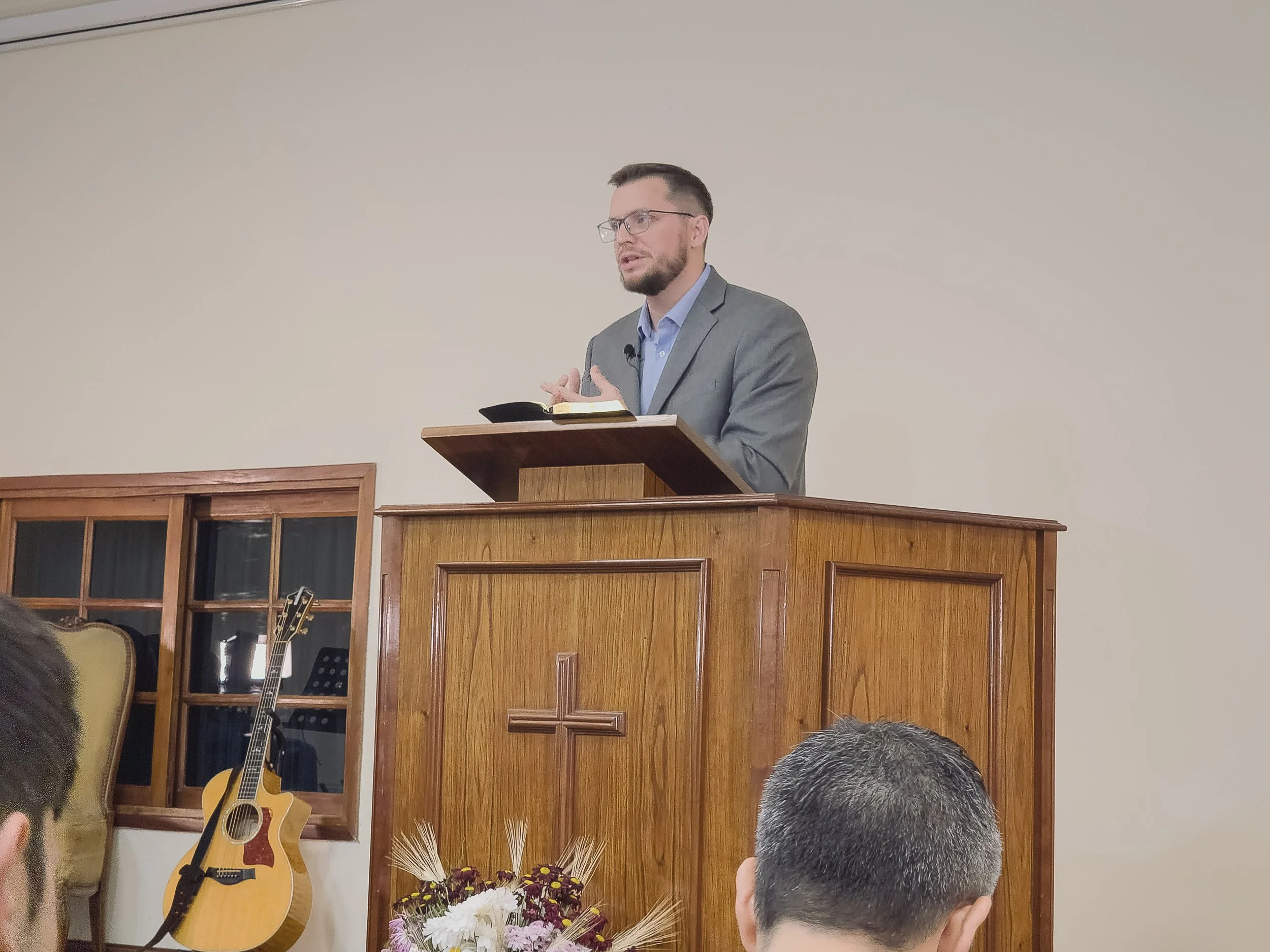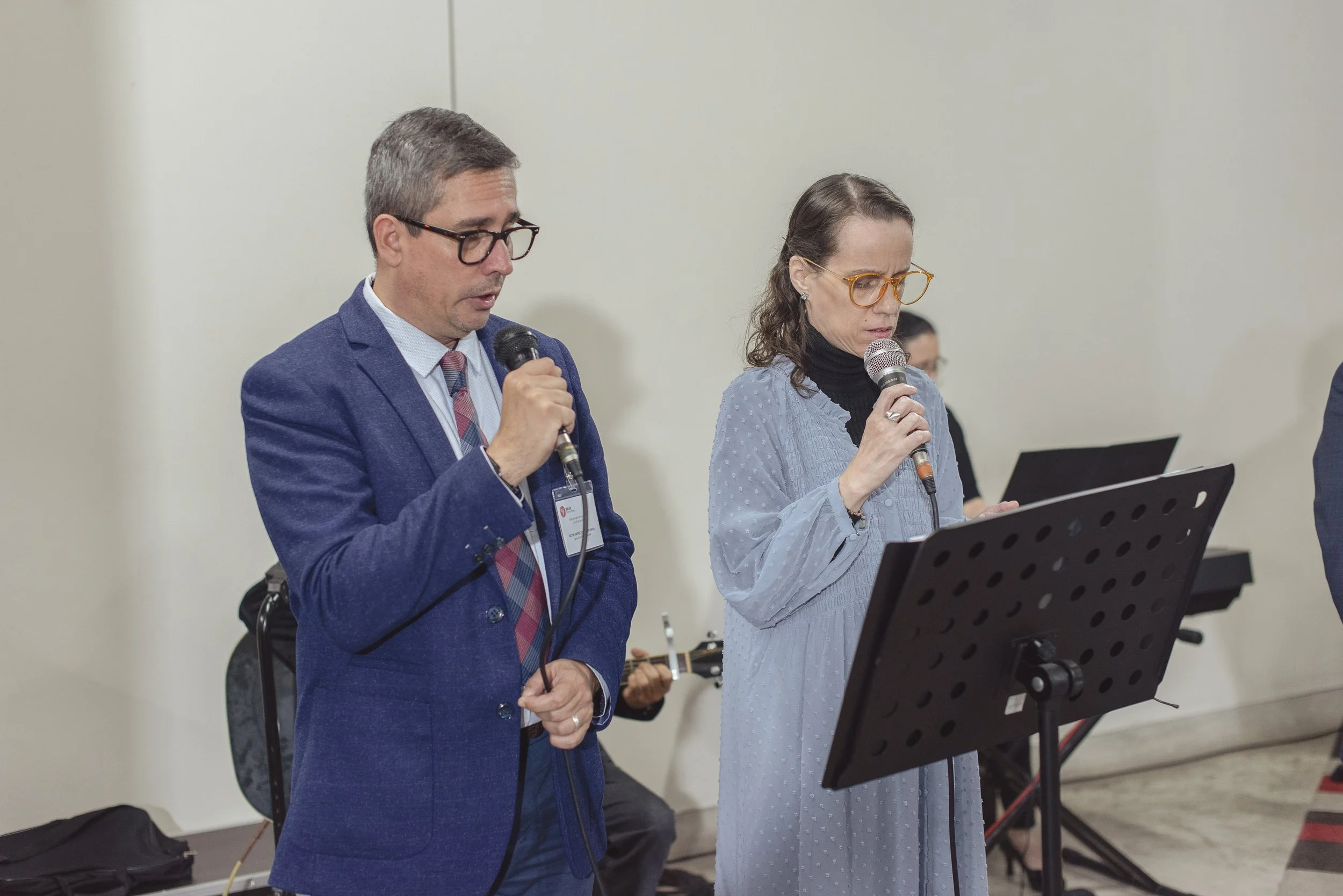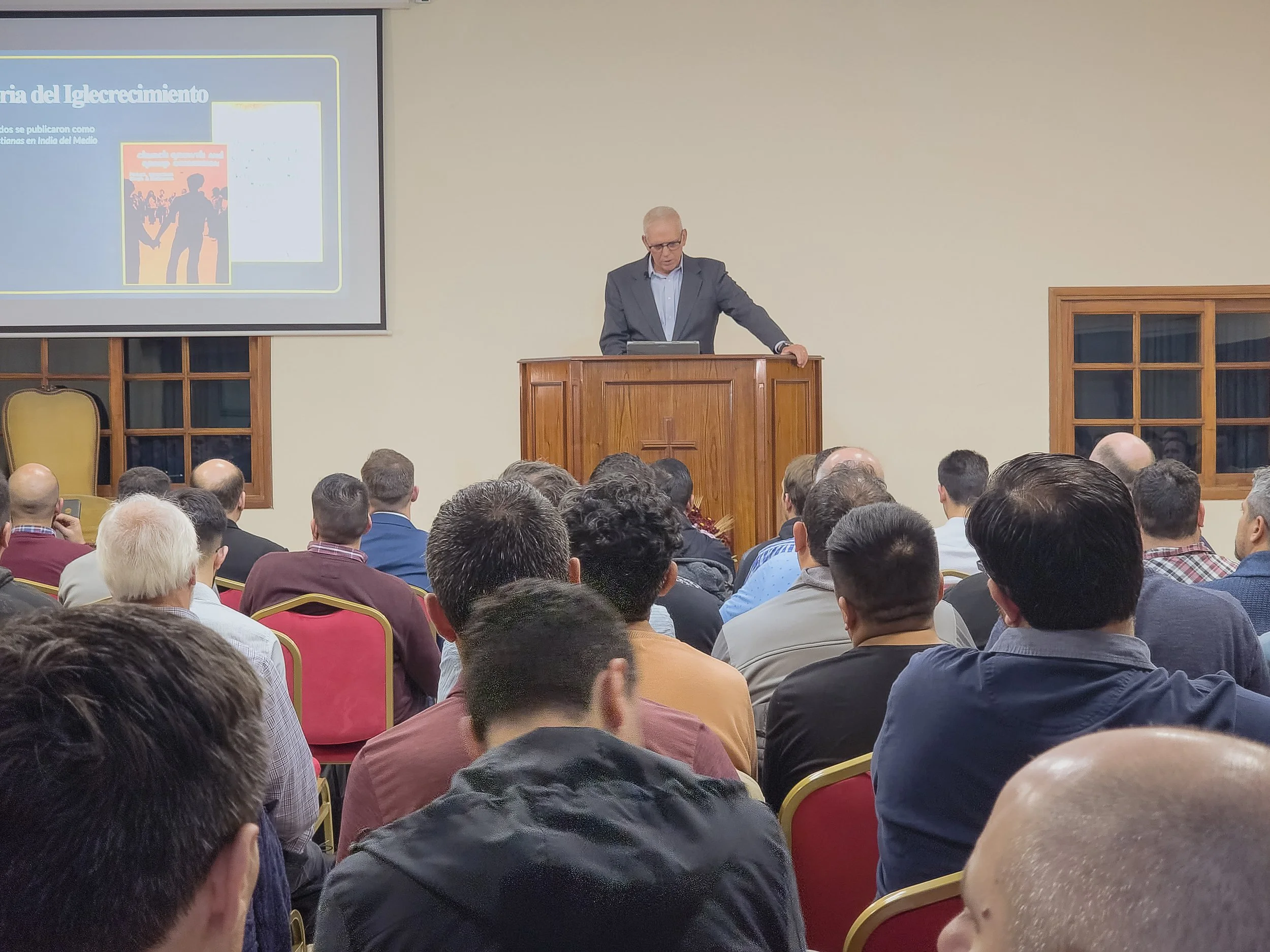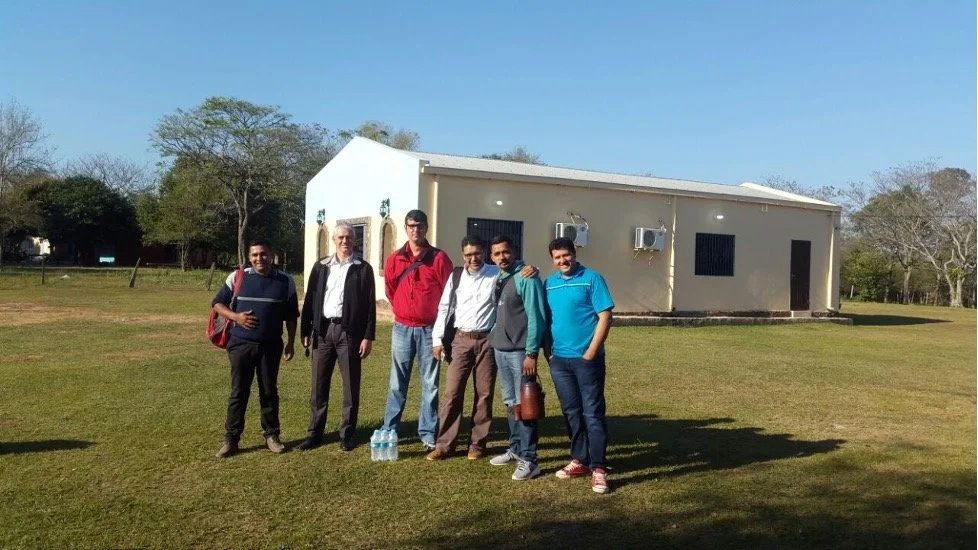Argentina
Expositor’s Institute in Argentina
MEMBER SCHOOL
Number of Graduates: 53 | Churches Impacted: 34
We train faithful expositors of God’s Word in order to impart life to His Church and light to this world.
MISSION
KEY DETAILS ON EXPOSITOR’S INSTITUTE IN ARGENTINA
About
-
To train South American pastors, elders, and lay leaders for ministry by developing a commitment to the sufficiency and final authority of the Bible, with an emphasis on expository preaching.
-
A completely indigenous training center
A team of teachers with shared values and theological convictions
Students have already proven their commitment and character
An intentional focus on Biblical Exposition
An intimate relationship with local churches
-
We use online classes in all our courses, with some intensive residential components (hybrid). Students complete assignments using Canvas (watching edited videos, readings, essays, and exams).
Each student is paired with a mentor pastor for regular discipleship and mentorship. As part of their training, students are required to preach at least three times in their local church and complete a ministry practicum before graduation.
Training
-
We offer three different certificates (each two years in duration): in Bible and Theology, in Exegesis and Exposition, and Ministry and Bible Counseling.
-
Our school was founded in 2014 by local church pastors with support from missionaries sent by Grace Community Church. It began with 16 students. Currently, we have an average of 200 students from Argentina, Paraguay, Chile, Perú, Venezuela, Cuba, and Uruguay, eight faculty members, and four administrative, design, and IT employees.
-
We aim to expand our training center to Paraguay, Perú, and Bolivia in the next five years. Additionally, we strive to establish a department for printed materials to complement our courses.
Context
-
Population: 46,994,384 (2024 est.)
Ethnic Groups: European (mostly Spanish and Italian descent) and Mestizo (mixed European and Indigenous ancestry) 97.2%, Indigenous 2.4%, African descent 0.4% (2010 est.)
Languages: Spanish (official), Italian, English, German, French, indigenous (Quechua, Guarani, Mapudungun)
Religions: Roman Catholic 62.9%, Evangelical 15.3% (Pentecostal 13%, other Evangelical 2.3%), Jehovah's Witness and Church of Jesus Christ 1.4%, other 1.2% (includes Muslim, Jewish), none 18.9% (includes agnostic and atheist), unspecified 0.3% (2019 est.)
Refugees and Internally Displaced Persons
Refugees (Country of Origin): 217,742 (Venezuela) (economic and political crisis; includes Venezuelans who have claimed asylum, are recognized as refugees, or have received alternative legal stay) (2023)
Stats from CIA.gov
-
In 1816, the United Provinces of the Rio de la Plata declared independence from Spain, separating into the modern-day nations of Bolivia, Paraguay, Uruguay, and Argentina. The country’s population and culture have been heavily influenced by European immigration, particularly from Italy and Spain. Political unrest and military conflict marked much of Argentina’s history up until the mid-20th century. After World War II, Argentina experienced a season of populist government under President Juan Domingo Perón until his death in 1974. Democracy was instated in Argentina in 1983 and has persisted despite many challenges.
Following a major economic crisis in 2001-2002, the nation experienced alternating cycles of economic growth and instability. Libertarian Javier Milei won the presidency amid deep economic challenges in 2023. He has followed a path of drastic reform—cutting public agencies and overhauling tax and monetary policies to stabilize Argentina’s economy. Argentina’s population is increasingly urbanized, with one-third of all Argentinians residing in the capital, Buenos Aires. The country is also known for having one of the world’s largest Jewish populations outside of Israel.
Compiled from CIA.gov, Operation World, and Joshua Project
HOW TO PARTNER
Support Expositor’s Institute in Argentina
LEARN MORE











